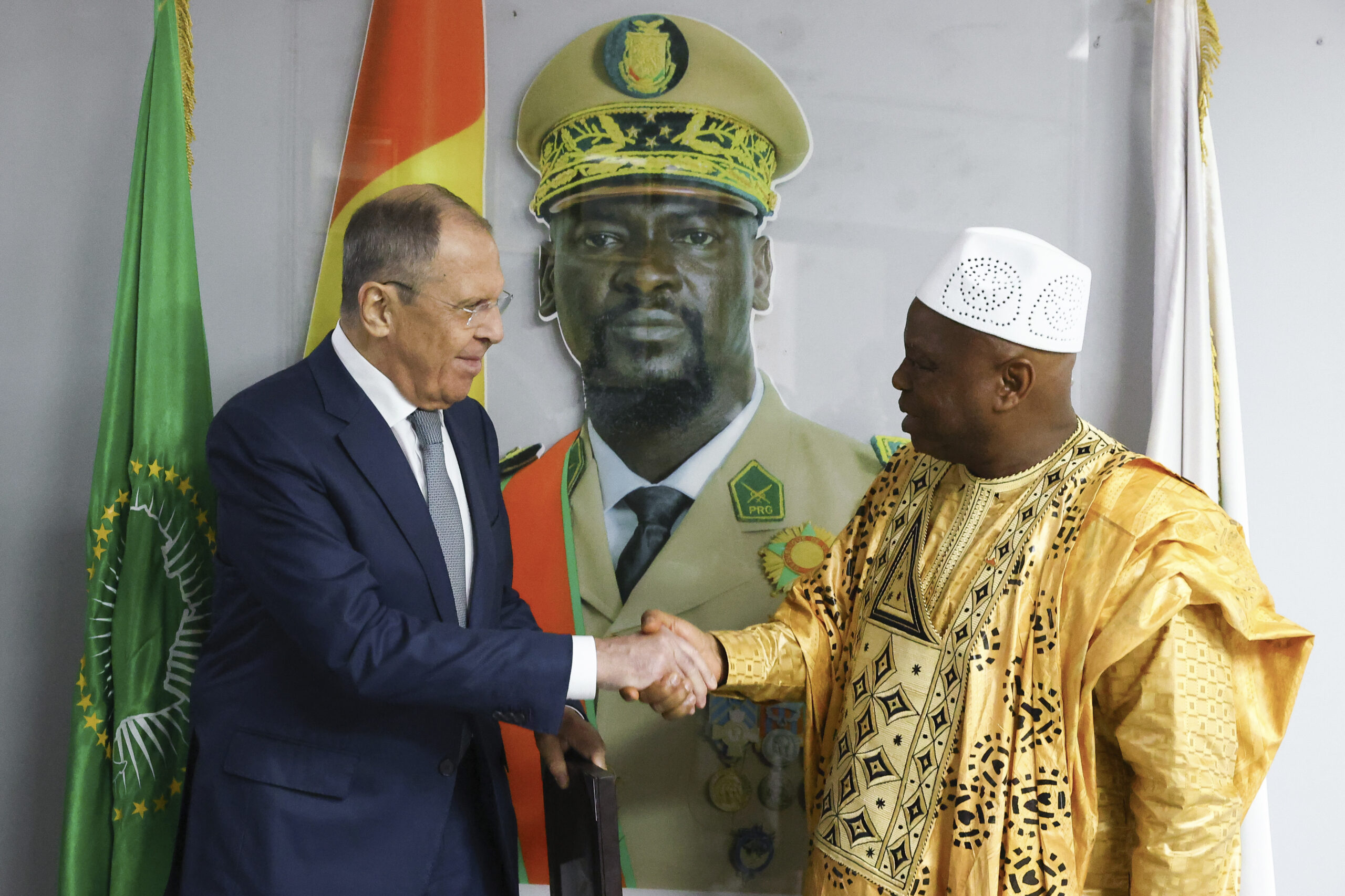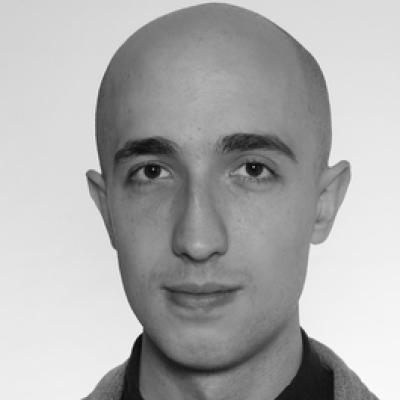After a short post-Prigozhin lull and lacking the arms trade as an instrument, Russia is pushing into the African continent in full. According to some estimates, Russia’s military footprint in Africa is growing, from an approximate 2−3 thousand Wagner fighters in the early 2020s, to now up to 6 thousand ex-Wagner and Africa Corps personnel, with new deployments in the Sahel. In addition, Moscow has opened two new embassies in the last few months (Burkina Faso and Equatorial Guinea, though with a new presence in Tripoli as well) and a host of ‘Russia House’ educational and propaganda outfits in several countries. In 2023, Russia-Africa trade grew to 21 billion USD and surpassed all Russian trade with the American continent.
Who are the actors in this expansion? This article presents a short and incomplete attempt at a ‘who’s who’ of the Russians and Russia-based actors who manage Moscow’s engagements with the continent. A glance at some of these individuals can help paint a picture about the depth and complexity of Russia-Africa ties, which are not as superficial as some would wish nor as profound as Moscow would fancy them to be.
The Academics
Irina Abramova. Abramova is a member of the Scientific Council of Russia’s Security Council and director of the Institute for African Studies of the Russian Academy of Sciences, making her a key intellectual in Russia-Africa ties. Abramova has shared a stage with Putin in the two Russia-Africa summits and is a recurrent speaker in the country’s top Africa policy events. In her May 2024 keynote speech at the 65th anniversary of the Africa Institute, Abramova reiterated the official lines on the rise of a multipolar world order and of the role of Russia’s aggression against Ukraine (its ‘Special Military Operation’) in bringing about this emerging international system. In Abramova’s speech, a Russia-Africa partnership in defence and resource extraction is evidence of the changing international order, also a part of the narrative of Russia’s messianic multipolarity.
Africa Corps and the ex-Wagnerites
Maksim Shugaley. Allegedly a ‘sociologist’ and long-time collaborator of Prigozhin, Shugaley is an experienced operator across Africa, establishing business front organisations, gathering intelligence, and carrying out election interference. After a few months of reduced activities after his patron’s demise, Shugaley returned to Africa in May, specifically to Chad. In a series of Telegram posts in May and June, he shared that he has been traveling to N’Djamena for that country’s presidential elections and for the opening of the country’s first Russia House.
Sergey Surovikin. General and commander of the eponymous Russian line in Ukraine, Gen. Surovikin was based in Algeria as defence attaché throughout late 2023 and early 2024. His Algerian sejour was a form of quasi-exile imposed by the Kremlin because of his proximity to Prigozhin prior to the 2023 mutiny. Despite this unfavourable situation, according to All Eyes on Wagner, Surovikin was a key intermediary in the post-Wagner Russian military expansion in Libya, today estimated to be nearing two thousand soldiers and ex-Wagner fighters. It is uncertain whether Surovikin is currently involved in the Libyan portfolio, but his experience on the ground and — by now — proven loyalty, might bring him back.
Dmitry Sytyi. Coordinator of the former Wagner Group civilian operations in Central African Republic (CAR), Sytyi has given continuity to the organisation’s presence in that country. For example, Sytyi runs the Wagner-linked brewery Ti L’Or. According to Czerep and Bryjka, Sytyi now leads the old Wagner structures in CAR, operating in parallel with the new Africa Corps entering the country. Sytyi benefits from having earned the trust of CAR’s leadership.
Yunus-Bek Yevkurov. Former governor of Ingushetia and deputy minister of defence, Yevkurov is seen by the Kremlin as a capable and dependable official, who was trusted the takeover of Wagner Group operations by the MoD. With that goal, he has been routinely traveling to several African countries and routinely meeting officials from all main Wagner theatres. For example, the months-long courtship of the Burkina Faso junta was led by Yevkurov since September 2023 and eventually led to a military deployment in 2024.
The Businesspeople
Oleg Deripaska. Oligarch and close Kremlin war collaborator, Deripaska’s company Rusal — the world’s third largest aluminium producer — owns the largest bauxite mining and refining operations in Guinea. Thanks to its scale, Rusal has acted as an anchor for Russia’s presence in the country. Allegedly, the plane Lavrov used to arrive in Guinea in June 2024 is linked to Deripaska.
Igor Morozov. Member of the Federation Council and former KGB and FSK officer, Morozov is the chairman of Afrocom, the leading association of Russian businesses involved in Africa. Morozov is a fixture in Russia-Africa events, often working in parallel with the Kremlin’s diplomacy. For instance, Morozov met with Equatorial Guinean President Teodoro Obnang Mbasogo in November 2023, during the latter’s rapprochement with Moscow. Afrocom has branches in Angola, Egypt, Morocco, Nigeria, South Africa, Sudan, Tunisia, and Zimbabwe.
Alexey Likhachev. Director of the state-owned nuclear energy company Rosatom, Likhachev has been at the forefront of Russia’s wartime African commercial diplomacy. As Russia prioritises its arms production for its use against Ukraine, other sectors have risen in prominence in the Russia-Africa relationship. Nuclear power is among them, as Rosatom promises to develop this energy source for the countries of the continent. As Rosatom’s director, Likhachev has been at the forefront of this effort, meeting with African counterparts and young nuclear specialists.
The Diplomats
Mikhail Bogdanov. Seasoned diplomat and former ambassador to Egypt, since 2014 Bogdanov is the special presidential representative of Russia to the Middle East and Africa. In this role, he has been a hands-on actor in several of the major conflicts of the broader region, from Syria to Libya and Sudan, and even (briefly) in the Western Sahara. With the outbreak of the Hamas-Israel war, Bogdanov has directed his activities towards the Middle East, but he remains a figure in all major Russia-Africa engagements, tours and meetings. For example, in May, Bogdanov met with General Haftar as Russia’s presence in Libya is reportedly growing. Bogdanov has also met French-Beninois politician Kémi Séba in the past.
Ahouah Don Mello. Ivorian now reportedly based in Moscow, senior Africa advisor to Putin and current BRICS representative to West and Central Africa, Don Mello is a favoured partner of the Kremlin. In 2022, he was involved in the opening of the Central Africa Republic BRICS representation. In recent months, Don Mello has been boosting the so-called ‘Sahel Alliance’ of the West African juntas as well as the BRICS+ expansion in Africa, with the 2024 adhesion of Egypt and Ethiopia. In 2023, he actively promoted the expansion of links between the Burkina Faso junta and BRICS. In addition, Don Mello has participated at events by the Kemi Seba organisation Urgences Panafricanistes, as recently as 2024.
Vsevolod Tkachenko. Appointed in 2020 as the Africa director of the MFA, Tkachenko is a key actor in the implementation of the Kremlin’s African initiatives. He also travels frequently to the continent, giving interviews to local media and propagating Moscow’s message. He was an organiser of the 2019 and 2023 Russia-Africa summits. Tkachenko’s experience as a diplomat has taken him to Ethiopia — where he also represented Russia at the African Union -, as well as South Africa and Zimbabwe. In 2024, Tkachenko was likely involved in the opening of several new Russian embassies across the continent, such as in Equatorial Guinea and Sierra Leone. Some consider Tkachenko as the ‘Mr Africa‘ of the Kremlin. Other Russian diplomats to look out for include Igor Gromyko (Mali and Niger, since 2019), Andrey Chernovol (Sudan, since 2023), and Alexey Sentebov (Democratic Republic of Congo, since 2017).
The Ideologues
Konstantin Malofeev. Former reider, supporter of Russia’s aggression against Ukraine and current oligarch close to the Kremlin, Malofeev has pursued certain business activities in Africa. He was a partner of the 2019 Russia-Africa summit and was running a financial consulting firm for African clients into the 2020s. Adding to his Africa engagements is his International Russophile Movement. The movement follows Malofeev’s political reactionary and imperial view of Russia (he has publicly called for Putin to be officially designated as Tsar), as well as the Kremlin’s messianic multipolarity foreign policy. The movement has received endorsements from the Russian MFA and Lavrov has spoken at their events. They alleged that their February 2024 conference received delegates from 130 countries. In addition, there may be several ‘Russophile’ organisations in Africa, notably in Cameroon, where Malofeev’s movement is trying to make inroads in different spheres, including in academia and business. Malofeev’s media organisation Tsargrad has dedicated attention to Africa as well.
Aleksander Dugin. Despite his fascistic and chauvinistic views, Dugin has also had a penchant for engaging African counterparts, such as Kémi Séba, and justifying the Kremlin’s African policies. Throughout his career, Dugin has advocated for an anti-Western coalition between ‘Eurasia’ and Africa, which went from speculation in the 1990s to an overt policy goal today. Dugin spoke at the 2024 Russophile Movement Congress.
The Metropolitan
Metropolitan Konstantin of Zaraisk. Exarch of Africa of the Russian Orthodox Church (ROC), Metropolitan Konstantin of Zaraisk is poised to continue the spiritual expansion of the Moscow Patriarchate in the continent. The Africa exarchate of the Russian Orthodox Church (ROC) was founded by the Moscow Patriarchate in 2019 with the implicit goal of undermining the African presence of the Alexandria and Constantinople Patriarchates. The Moscow exarchate has co-opted or founded over 200 parishes in the continent, albeit their capacity to control them directly is limited. The Moscow Patriarchate has embraced Russia’s war of aggression and thus launders Russia’s image abroad, including in Africa. Previously, the exarchate was led by Metropolitan Klin — nicknamed ‘Prigozhin in a cassock’ – but he was demoted in October 2023, presumably because of his close partnership with Prigozhin.
The Officials
The Patrushevs. Son of the former Security Council chairman and graduate of the FSB Academy, Dmitry Patrushev has quickly ascended in the Kremlin hierarchy and is the current deputy Prime Minister. From 2018 to 2024, Dmitry Patrushev was minister of agriculture, overseeing the country’s sensitive grain and fertiliser exports to Africa, especially with Algeria. His father, Nikolay Patrushev, was involved on several Russia-Africa initiatives, especially in Sudan where he cultivated links with the country’s former intelligence services (controlled by the SAF) and with RSF commander Hemetti. Today, it remains to be seen whether he will continue to hold an Africa portfolio in his current role as Putin’s aide.
Yuri Ushakov. Presidential advisor on foreign affairs, Ushakov has been involved in the planning and implementation of different Russia-Africa initiatives, including the 2019 and 2023 summits. Despite the broad scope of his activities, Ushakov seems to have a role in the BRICS and Russia-Africa portfolios, with the former gaining additional relevance in Africa after the group’s 2024 expansion into Egypt and Ethiopia. His access to Putin and role as foreign policy planner and implementer gives him a front-row seat to much of the country’s foreign policy, most recently illustrated by his participation in the Russian delegation to Putin’s North Korea visit.
The Propagandists
Viktor Lukovenko. Former Wagnerite, Lukovenko is the director of African Initiative, the new media arm of Russia’s disinformation and propaganda operations in the continent. Reportedly, Lukovenko is based in Moscow but travels across Africa often, with his media operation running offices in Burkina Faso and Mali. The US State Department considers that African Initiative operates thanks of Russian intelligence support; the organisation’s editor-in-chief, Artem Kureyev, is allegedly an FSB operative.
Alexey Nikolov. Managing Director of state-controlled media RT and its Arabic, English and Spanish channels, Nikolov is a discrete but active figure in the channel’s ongoing Africa expansion. Since 2022, RT has gained new scope in Africa, going from having no offices in the continent to now claiming to operate from Algeria, Burkina Faso, Egypt, Kenya, Nigeria, Tunisia and South Africa. In addition, 2022, RT and Afrique Media — a Cameroon-based, pro-Russia media outfit — signed an agreement meant to expand the reach of RT in the continent. While RT is broadcast in many countries, other countries have pulled the channel, including South Africa.
The Spies
Andrey Averyanov. Head of the notorious GRU Unit 29155, Averyanov is at the origin of the African Corps, the successor to the Wagner Group. Immediately after Prigozhin’s mutiny, it was up to Averyanov to bring the Wagner structures under direct MoD control. Averyanov was introduced by Putin himself to Malian counterparts in 2023 as the figure meant to give continuity to Russia’s armed presence in that country after Prigozhin’s mutiny.
Denis Pavlov. SVR officer under diplomatic cover in Bangui, Pavlov is tasked by the Kremlin to replace those ex-Wagner members who handled the security cooperation with the CAR government. Unlike previous times, Pavlov’s presence in CAR hints at a larger role for Russia’s civilian intelligence in Russia’s military expansion in the continent, a portfolio previously tightly guarded by the GRU. Pavlov used to operate in Belgium until 2023 when he was re-assigned to Africa.
The Collective Putin across Africa
What threads bring together this disparate group of individuals? After all, many of them are in widely different institutions and operate according to different procedures. Some engage in relatively low-key activities while some are the masterminds of much suffering happening in Africa, Europe and beyond. What brings these figures together is their access to the Kremlin and their endorsement — genuine or feigned — of Putin’s messianic multipolarity. Indeed, each of the figures listed above rely on the Kremlin for their Africa operations, either just for approval or for funding and technical support. Even the nominally private entrepreneurs Deripaska and Malofeev could not enjoy their relative security without backing from the Kremlin.










